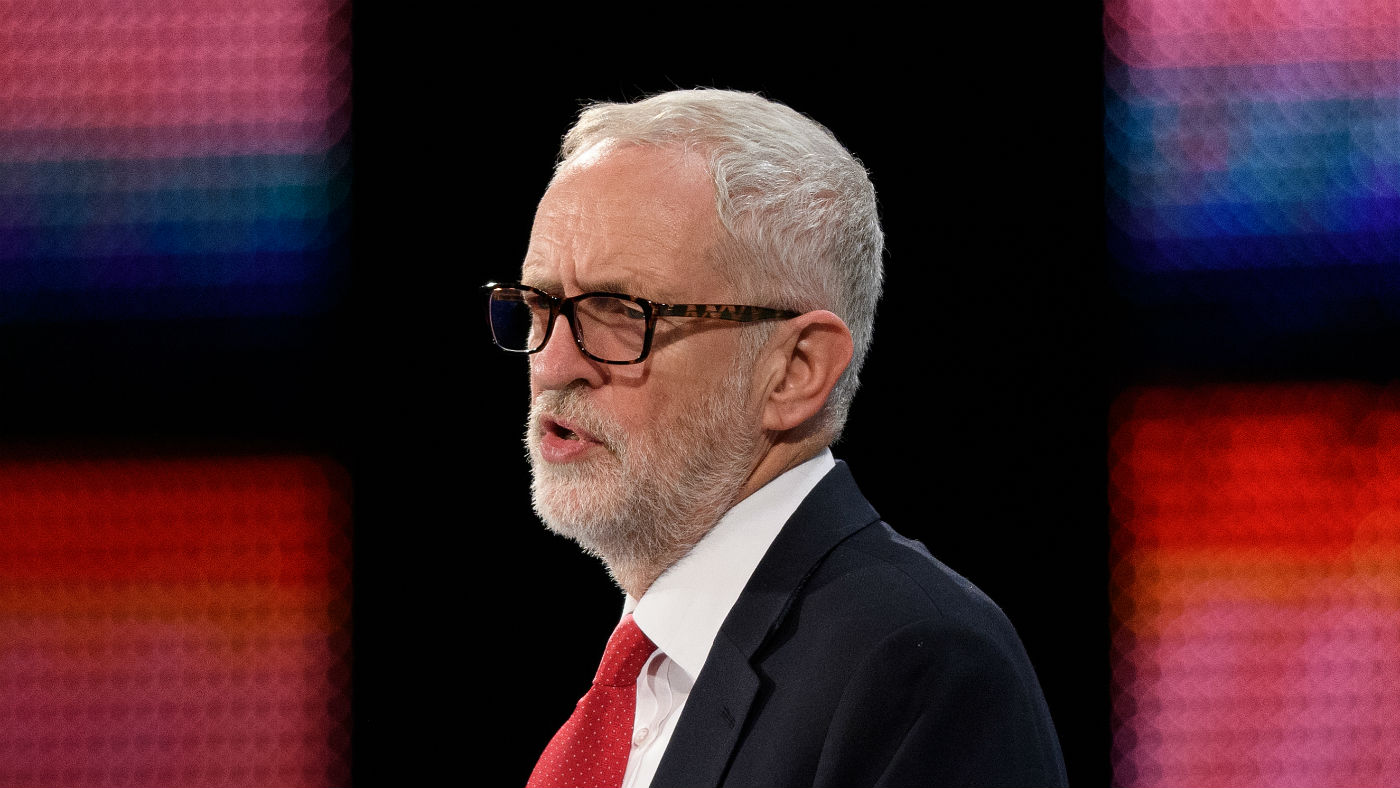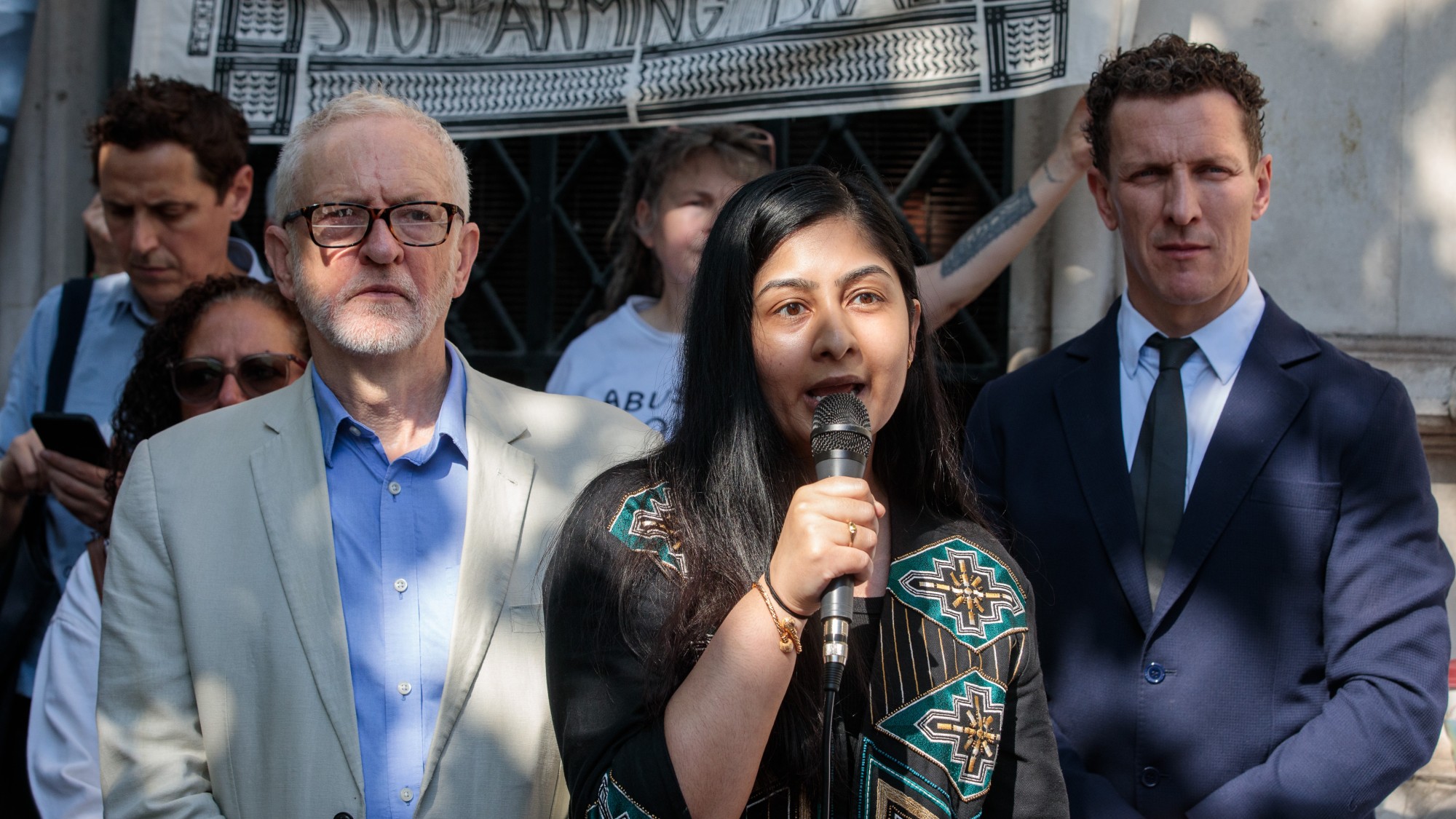Are voter ID plans discriminatory?
Corbyn criticises Government plans to require voters to bring photo ID to polling stations

A free daily email with the biggest news stories of the day – and the best features from TheWeek.com
You are now subscribed
Your newsletter sign-up was successful
The Government’s plans to make all UK voters prove their identity at the polls will “disproportionately” discriminate against ethnic minorities and the working class, Jeremy Corbyn has claimed.
Proposals were announced in the Queen's Speech yesterday to require voters in England, Scotland and Wales to bring photo ID to polling stations in order to cast their vote. Northern Ireland already requires voter identification.
The Government says the plans are designed to help give the public confidence that elections are “secure and fit for the 21st century”.
The Week
Escape your echo chamber. Get the facts behind the news, plus analysis from multiple perspectives.

Sign up for The Week's Free Newsletters
From our morning news briefing to a weekly Good News Newsletter, get the best of The Week delivered directly to your inbox.
From our morning news briefing to a weekly Good News Newsletter, get the best of The Week delivered directly to your inbox.
A Cabinet Office spokesman added: “Showing ID to vote is a reasonable and proportionate way to protect our elections - it is something people already do in everyday life and voters in Northern Ireland have been doing it with ease for decades.”
However, the Labour leader said the plans were an attempt to “suppress voters” and “rig” the next general election, the BBC reports.
Speaking at a rally after the Queen's Speech, Corbyn said the plans were a “blatant attempt” to “deny people their democratic rights”.
He added: “The people that the Tories are trying to stop voting will be disproportionately from ethnic minority backgrounds, and they will disproportionately be working class voters of all ethnicities.”
A free daily email with the biggest news stories of the day – and the best features from TheWeek.com
The Electoral Commission found in 2015 that about 3.5 million citizens, or 7.5% of the electorate, did not have access to any approved photo ID.
The independent body found that women are significantly less likely than men, and black people significantly less likely than white people, to have a driving licence. Gypsies and Irish Travellers are also much less likely than the average to have a passport.
The Electoral Reform Society has expressed concern about the plans. Chief executive Darren Hughes said: “When millions of people lack photo ID, these mooted plans risk raising the drawbridge to huge numbers of marginalised voters - including many elderly and BAME (black, Asian and minority ethnic) voters.”
Left-wing news website Spiked said that the move would “damage democracy,” adding: “If politicians get into the habit of doubting the validity of votes cast by black and brown citizens, that will have a markedly corrosive effect on the political process.”
The Government says it will to offset the risk of people missing out on voting by introducing a new form of identity document which voters can apply for free of charge.
Conservative Party chairman James Cleverly accused Corbyn of “sowing the seeds of division”. He added: “If anything, tougher checks against electoral fraud will protect the democratic rights of all communities.”
In 2016, former communities secretary Sir Eric Pickles accused the authorities of turning a blind eye to electoral corruption because of “over-sensitivities about ethnicity and religion”. He called for voters to provide proof of identity at polling stations.
–––––––––––––––––––––––––––––––For a round-up of the most important stories from around the world - and a concise, refreshing and balanced take on the week’s news agenda - try The Week magazine. Get your first six issues for £6–––––––––––––––––––––––––––––––
-
 Local elections 2026: where are they and who is expected to win?
Local elections 2026: where are they and who is expected to win?The Explainer Labour is braced for heavy losses and U-turn on postponing some council elections hasn’t helped the party’s prospects
-
 6 of the world’s most accessible destinations
6 of the world’s most accessible destinationsThe Week Recommends Experience all of Berlin, Singapore and Sydney
-
 How the FCC’s ‘equal time’ rule works
How the FCC’s ‘equal time’ rule worksIn the Spotlight The law is at the heart of the Colbert-CBS conflict
-
 Local elections 2026: where are they and who is expected to win?
Local elections 2026: where are they and who is expected to win?The Explainer Labour is braced for heavy losses and U-turn on postponing some council elections hasn’t helped the party’s prospects
-
 How corrupt is the UK?
How corrupt is the UK?The Explainer Decline in standards ‘risks becoming a defining feature of our political culture’ as Britain falls to lowest ever score on global index
-
 The high street: Britain’s next political battleground?
The high street: Britain’s next political battleground?In the Spotlight Mass closure of shops and influx of organised crime are fuelling voter anger, and offer an opening for Reform UK
-
 Biggest political break-ups and make-ups of 2025
Biggest political break-ups and make-ups of 2025The Explainer From Trump and Musk to the UK and the EU, Christmas wouldn’t be Christmas without a round-up of the year’s relationship drama
-
 Is a Reform-Tory pact becoming more likely?
Is a Reform-Tory pact becoming more likely?Today’s Big Question Nigel Farage’s party is ahead in the polls but still falls well short of a Commons majority, while Conservatives are still losing MPs to Reform
-
 The launch of Your Party: how it could work
The launch of Your Party: how it could workThe Explainer Despite landmark decisions made over the party’s makeup at their first conference, core frustrations are ‘likely to only intensify in the near-future’
-
 Taking the low road: why the SNP is still standing strong
Taking the low road: why the SNP is still standing strongTalking Point Party is on track for a fifth consecutive victory in May’s Holyrood election, despite controversies and plummeting support
-
 Your Party: a Pythonesque shambles
Your Party: a Pythonesque shamblesTalking Point Comical disagreements within Jeremy Corbyn and Zarah Sultana's group highlight their precarious position